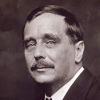“ The imagination passes easily from obscure to lively ideas, but with difficulty from lively to obscure. ”
David Hume, A Treatise of Human Nature (1738). copy citation
| Author | David Hume |
|---|---|
| Source | A Treatise of Human Nature |
| Topic | imagination difficulty |
| Date | 1738 |
| Language | English |
| Reference | |
| Note | |
| Weblink | http://www.gutenberg.org/files/4705/4705-h/4705-h.htm |
Context
“But every thing, that strikes upon us with vivacity, and appears in a full and strong light, forces itself, in a manner, into our consideration, and becomes present to the mind on the smallest hint and most trivial relation. For the same reason, when it is once present, it engages the attention, and keeps it from wandering to other objects, however strong may be their relation to our first object. The imagination passes easily from obscure to lively ideas, but with difficulty from lively to obscure. In the one case the relation is aided by another principle: In the other case, it is opposed by it.
Now I have observed, that those two faculties of the mind, the imagination and passions, assist each other in their operations when their propensities are similar, and when they act upon the same object.”
source



